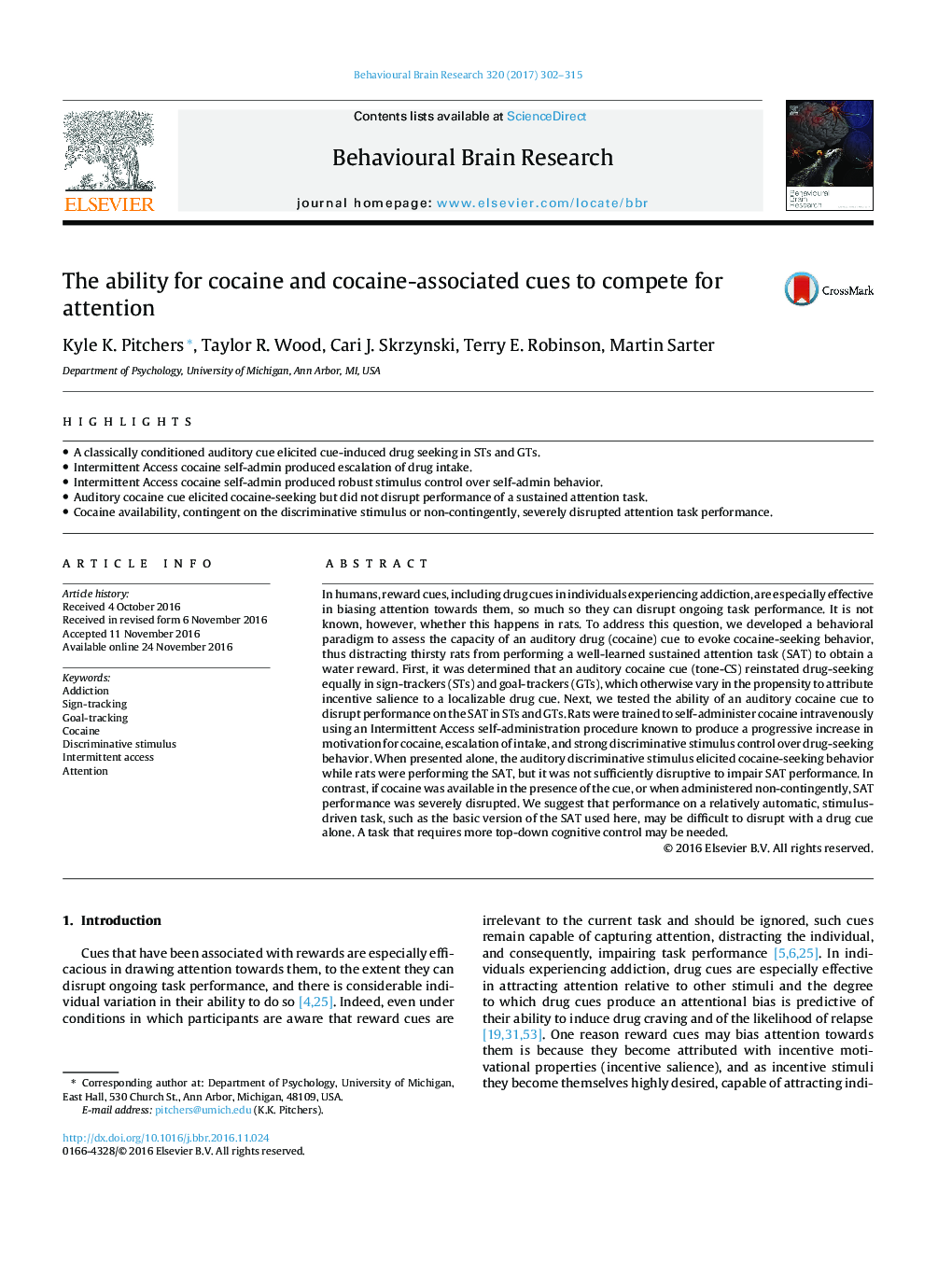| کد مقاله | کد نشریه | سال انتشار | مقاله انگلیسی | نسخه تمام متن |
|---|---|---|---|---|
| 5735672 | 1612913 | 2017 | 14 صفحه PDF | دانلود رایگان |
عنوان انگلیسی مقاله ISI
The ability for cocaine and cocaine-associated cues to compete for attention
ترجمه فارسی عنوان
توانایی کوکائین و نکات مرتبط با کوکائین برای رقابت برای توجه
دانلود مقاله + سفارش ترجمه
دانلود مقاله ISI انگلیسی
رایگان برای ایرانیان
کلمات کلیدی
اعتیاد، ردیابی ورود ردیابی هدف، کوکائین، محرک محرک، دسترسی متناوب، توجه
موضوعات مرتبط
علوم زیستی و بیوفناوری
علم عصب شناسی
علوم اعصاب رفتاری
چکیده انگلیسی
In humans, reward cues, including drug cues in individuals experiencing addiction, are especially effective in biasing attention towards them, so much so they can disrupt ongoing task performance. It is not known, however, whether this happens in rats. To address this question, we developed a behavioral paradigm to assess the capacity of an auditory drug (cocaine) cue to evoke cocaine-seeking behavior, thus distracting thirsty rats from performing a well-learned sustained attention task (SAT) to obtain a water reward. First, it was determined that an auditory cocaine cue (tone-CS) reinstated drug-seeking equally in sign-trackers (STs) and goal-trackers (GTs), which otherwise vary in the propensity to attribute incentive salience to a localizable drug cue. Next, we tested the ability of an auditory cocaine cue to disrupt performance on the SAT in STs and GTs. Rats were trained to self-administer cocaine intravenously using an Intermittent Access self-administration procedure known to produce a progressive increase in motivation for cocaine, escalation of intake, and strong discriminative stimulus control over drug-seeking behavior. When presented alone, the auditory discriminative stimulus elicited cocaine-seeking behavior while rats were performing the SAT, but it was not sufficiently disruptive to impair SAT performance. In contrast, if cocaine was available in the presence of the cue, or when administered non-contingently, SAT performance was severely disrupted. We suggest that performance on a relatively automatic, stimulus-driven task, such as the basic version of the SAT used here, may be difficult to disrupt with a drug cue alone. A task that requires more top-down cognitive control may be needed.
ناشر
Database: Elsevier - ScienceDirect (ساینس دایرکت)
Journal: Behavioural Brain Research - Volume 320, 1 March 2017, Pages 302-315
Journal: Behavioural Brain Research - Volume 320, 1 March 2017, Pages 302-315
نویسندگان
Kyle K. Pitchers, Taylor R. Wood, Cari J. Skrzynski, Terry E. Robinson, Martin Sarter,
